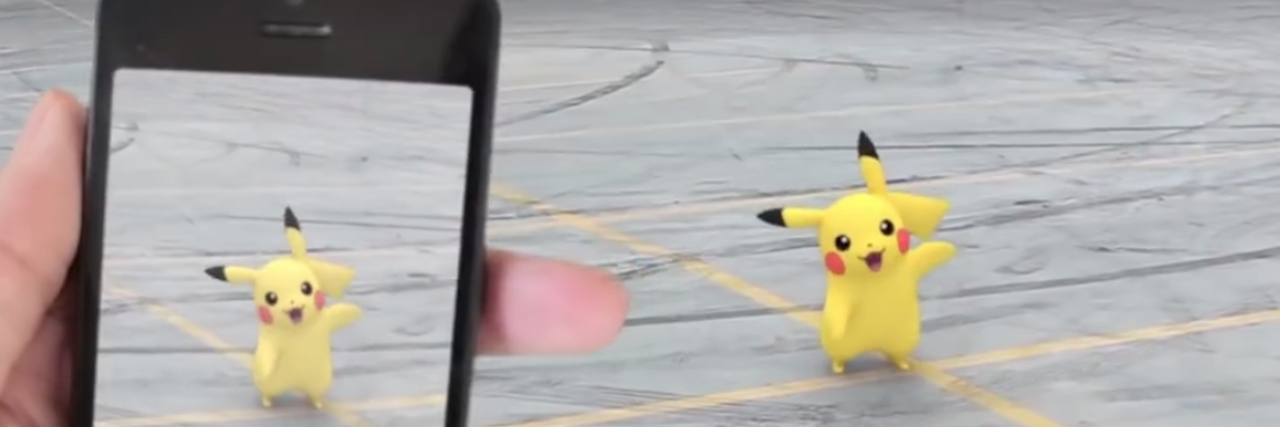It’s easy to look at new technology, especially extremely popular technology, and be judgmental. Video games in particular have taken a lot of flak for being a waste of time, for keeping people buried in their computer or phone and for getting in the way of socializing. What many people don’t realize is that as someone with a mental illness, technology is an integral part of how I stay healthy.
And while it might seem trite, Pokemon Go is revolutionizing my self-care.
So for those who might roll their eyes at why all these young adults are suddenly reverting back to children, here’s a little explanation of why Pokemon Go is more than just a video game: it’s a serious tool in my wellness toolbox.
I’m currently in recovery from an eating disorder and depression. It’s still pretty new, which means I have to pay careful attention to a lot of things in order to keep my mood stable and my food intake steady. Some of the most important pieces of my recovery are regular exercise, getting outside and connecting with other people.
Unfortunately, in the last month or so those things have been really hard to do. Sometimes you can’t explain why it’s a struggle, it just is. You can’t will yourself into just doing it when you’re fighting depression. You have to have strategies that get around the listlessness and disinterest. I’d tried nearly everything I could think of to get myself back outside and moving, to help get my energy up, to spend more time with my fiance and my friends. Nothing was working.
Enter Pokemon Go.
I love Pokemon. I played the games when I was a kid, so there’s a strong nostalgia factor, plus the obsessive side of my brain loves grinding to level up my characters. My fiance has been freaking out about Pokemon Go for months (so much so that I created a Pokemon scavenger hunt as our proposal, but that’s another story). It seemed like a perfect fit for us. And boy howdy was it ever.
I have literally never in my life walked as much as I have in the past week. I’m hitting my activity goals, or doubling them every single day. I barely even notice though, because I’m having so much fun. Exercise is a delicate balance when an eating disorder is part of the mix: it’s really important to mood, but it’s so easy to become obsessive. Now I’m not even thinking about the distance I’m going or the time I’m spending moving. Instead it’s all about catching em all, and I still get the benefits of exercise.
I’m even connecting with friends in ways that are challenging for me as someone with social anxiety and autism. I discovered one of my friends lives just a few blocks away, and we’ve gone hunting together, spending one-on-one time that would have been terrifying if we didn’t have these adorable creatures to talk about. My fiance and I are spending tons of quality time together. I’m even talking to strangers, which is basically number one on my list of terrifying things. I’m typically not a fan of talking to kids, and the other night as I was walking down the street one hailed me with “Pokemon Go?” and I yelled back, “Heck yes!” It’s amazing the kinds of connections I’m making that seemed not only impossible but unwanted just a few weeks ago.
All of this because a simple game has turned these events into something my brain understands. It has created a world I understand and enjoy — one that allows me to connect with the larger world around me. Sometimes when your brain doesn’t work in typical ways, you have to hack it a little bit. If a kids game is what works to get me outside, moving, connecting and having fun, then I will embrace it.
Thank you, Pokemon Go.
Follow this journey on We Got So Far to Go.
leadphoto source: PokemonGo

